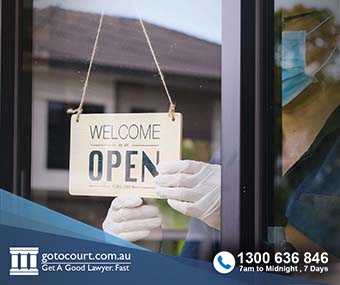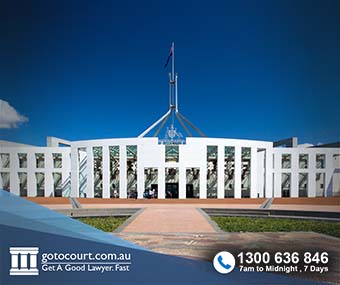Call our lawyers
now
or,
have our lawyers
call you
Public Drunkenness Offences
Updated on Aug 27, 2019 • 5 min read • 390 views • Copy Link
Public Drunkenness Offences
There is a long history of Australian states and territories criminalising public drunkenness. In various forms, laws have existed making it an offence to be intoxicated in public for the last 200 years. The laws have long been criticised for being unevenly enforced, with a disproportionate number of Aboriginal people being arrested for behaviour that is generally not seen as criminal when engaged in by white people.
The 1991 Royal Commission into Aboriginal Deaths in Custody recommended that the offence of public drunkenness be abolished. Most states and territories have now repealed offences that consist solely of being drunk in a public place. However other associated offences still remain in many states and territories.
In Victoria and Queensland, the offence of public drunkenness still exists. The Inquest that is currently in progress into the 2017 death of Yorta Yorta woman Tanya Day, who was in police custody for public drunkenness, has brought the issue back into the spotlight. The Victorian Premier last week committed to repealing the offence of public drunkenness.
The offence
In Victoria, Section 13 of the Summary Offences Act 1966 makes it an offence to be drunk in a public place. This offence is punishable by a fine of up to $1,289.52.
In Queensland, Section 10 of the Summary Offences Act 2005 makes it an offence to be drunk in a public place and this in punishable by a fine of up to two penalty units. In Queensland this is currently $261.10.
The Tanya Day inquest
In 2017, 55-year-old Tanya Day was arrested for public drunkenness on a train in Castlemaine. She had boarded the train from Echuca to Melbourne drunk, fallen asleep and been unable to locate her ticket when asked by inspectors. Inspectors claimed she behaved in a disorderly manner while being spoken to on the train, however other passengers said she was co-operative.
Ms Day was held in police custody in Castlemaine, where police were required to check on her every 30 minutes. This did not occur. The same day, Ms Day fell and hit her head on a concrete wall. Several hours later, police conducted a check and called an ambulance. A scan showed massive internal bleeding in her brain. She died 17 days later.
The inquest into Ms Day’s death is underway in Melbourne. The Coroner has already stated that she will be making a recommendation that the offence of public drunkenness be abolished in Victoria.
What is wrong with the offence of public drunkenness?
There are many criticisms of the offence of public drunkenness. Aside from the fact that it disproportionately affects Indigenous people, it reflects the common theme of treating public drinking as more problematic that drinking that occurs in private.
People who drink in public, who are often from lower socio-economic groups, are therefore criminalised and scrutinised in a way that those who have the option of drinking at home are not.
Advocates of repealing the offence also say that drunkenness should be treated as a health issue and not a criminal one.
Changes coming in Victoria
Premier Daniel Andrews has announced that the offence of public drunkenness will be abolished in Victoria. Instead, persons found intoxicated in public will be dealt with by a health-based approach that will ‘promote therapeutic and culturally safe pathways to assist alcohol-affected people in public places.’
The Human Rights Law Centre in Melbourne has welcomed the government’s announcement, saying that the discriminatory laws need to be repealed.
Ms Day’s family has reportedly urged the government to act quickly to end the operation of the law. Her daughter has pointed out that laws in other states mean that Aboriginal people still face being disproportionately policed in relation to public drunkenness. She also noted that if the Victorian government had implemented the recommendation of the Royal Commission her mother’s death could have been avoided.
Other intoxication offences
Other criminal laws remain that involve the consumption of alcohol in public places. These laws include having alcohol in an open container in a public place, which is an offence under by-laws in many Victorian localities.
Other jurisdictions, such as the Northern Territory, permit police to take persons into ‘protective custody’ if they are so intoxicated they cannot adequately care for themselves or may cause harm to themselves or to someone else. This means the person is apprehended without arrest and though there is no charge laid, they may be held in police custody for up to eight hours.
Queensland to follow?
The announcement of the repeal of the public drunkenness offence in Victoria will leave Queensland as the only jurisdiction to have retained this law which is often described as outdated. Community members are now calling on the Queensland government to follow Victoria and decriminalise public drunkenness.
If you require legal advice or representation in a criminal law matter or in any other legal matter, please contact Go To Court Lawyers.

Affordable Lawyers
Our Go To Court Lawyers will assist you in all areas of law. We specialise in providing legal advice urgently – at the time when you need it most. If you need a lawyer right now, today, we can help you – no matter where you are in Australia.How It Works











1. You speak directly to a lawyer
When you call the Go To Court Legal Hotline, you will be connected directly to a lawyer, every time.


2. Get your legal situation assessed
We determine the best way forward in your legal matter, free of charge. If you want to go ahead and book a face-to-face appointment, we will connect you with a specialist in your local area.


3. We arrange everything as needed
If you want to go ahead and book a fact-to-face appointment, we will connect you with a specialist in your local area no matter where you are and even at very short notice.












